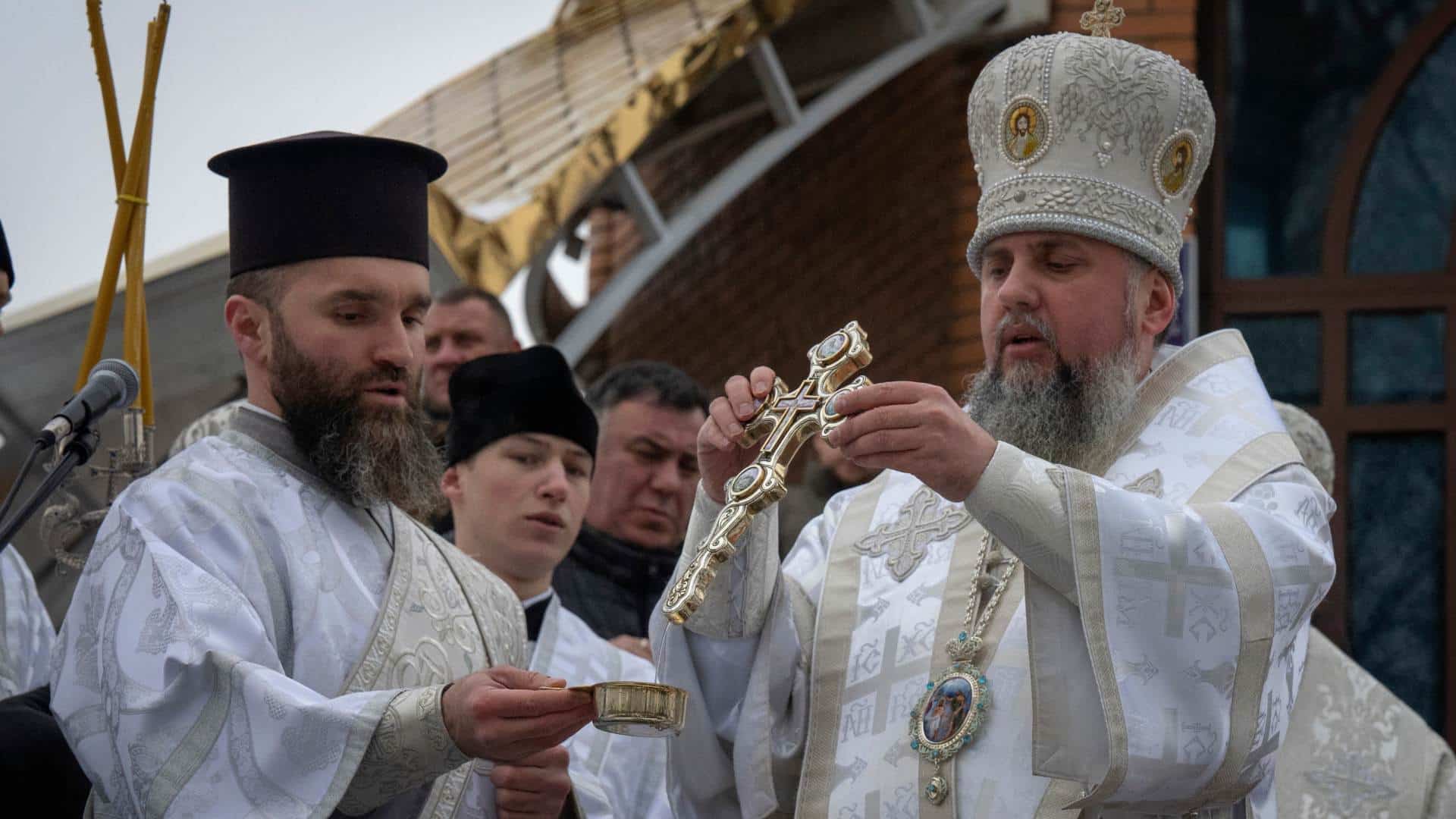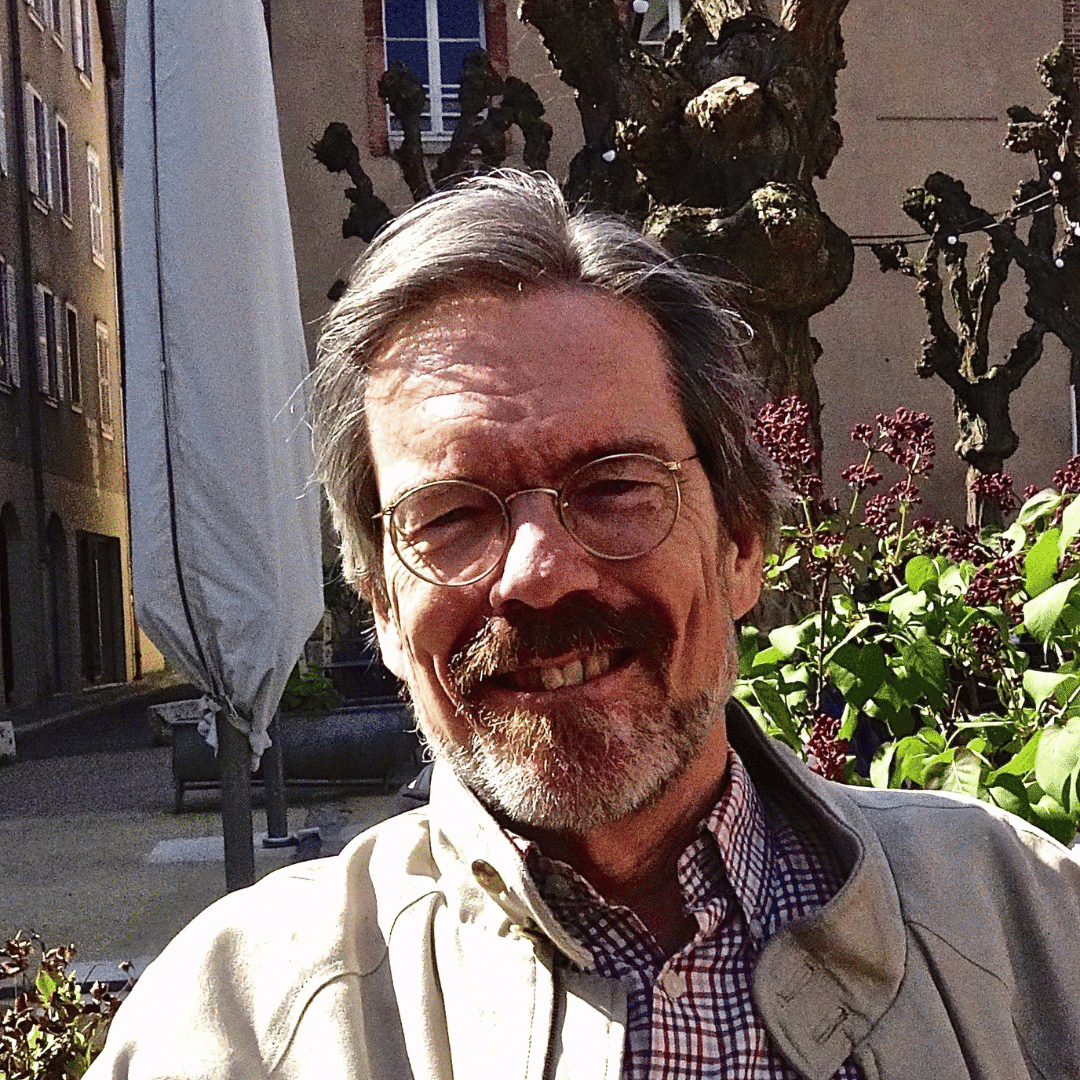New laws that affect what church people can pray in could cost Ukraine support from those who believe in religious freedom.

Metropolitan Epiphanius, the head of the Ukrainian Orthodox Church, blesses water during a traditional Epiphany celebration in Kyiv, Ukraine, 6 January 2024. (AP Photo/Efrem Lukatsky)
Volodymyr Zelenskyy used to be the darling of the West. With his soldier’s T-shirt and wartime beard, the appearances of the Ukrainian president aroused excitement in the media and statements of undying support from western politicians.
All he had to say was that his troops were bravely fighting the Russian bear and military aid flowed in. The simple story of the underdog fighting an invading army helped Zelenskyy secure money and weapons and temporary refugee status for Ukrainians who fled to Europe.
Two and a half years into that war, the story has changed. Russia is slowly eating away at Ukraine’s defenses. Western allies are getting worried about seemingly endless shipments of arms and aid. Calls for a compromise to end the war abound. Zelenskyy is losing his halo.
The question of religious liberty in Ukraine could further corrode the story. Little noticed in world news, Kyiv passed a law in late August restricting the pro-Russian Ukrainian Orthodox Church of the Moscow Patriarchate.
Its clerics have nine months to sever their links to Moscow or risk being banned. If they are, the obvious beneficiary would be the Orthodox Church of Ukraine, a pro-Kyiv rival formed only in 2018.
The politics of religion in Ukraine
Russia has had religious influence in Ukraine long before the Soviet Union even existed. When communism collapsed, Ukraine became independent and formed its own Orthodox church, sealing what Zelenskyy calls Ukraine’s “spiritual independence” to parallel its national sovereignty.
The Moscow-linked church became suspected of spreading Russian propaganda, an accusation that seemed sometimes true and sometimes not. At least half the faithful seem to have made the switch so far, but it’s hard to tell because both are Orthodox.
Services for the new church are often held in the old pro-Moscow house of prayer, sometimes even with the same priests as before if they’ve changed loyalties. Just a few details give the liturgy a Ukrainian accent rather than a Russian one.
Here’s where it becomes complicated. Some influential Christians abroad have problems with Kyiv’s solution. The Geneva-based World Council of Churches, which unites Protestant and Orthodox churches, has said it was “deeply alarmed by the potential for unjustified collective punishment of an entire religious community and violation of the principles of freedom of religion or belief.”
World leaders take sides.
The Roman Catholic Church, which has just over half of all the world’s Christians, was also opposed.
“Let those who want to pray be allowed to pray in what they consider their church,” Pope Francis said during a Sunday Angelus. “Please, let no Christian church be abolished directly or indirectly. Churches are not to be touched!”
A senior United Nations human rights official late last year found evidence that violence between parishioners of the rival churches has increased since the 2022 invasion.
Ecumenical Patriarch Bartholomew, who is based in Istanbul, is nominally the worldwide leader of the Orthodox Church and has always shown strong support for Kyiv. So in turn, do the patriarchs — or leaders — from Greece, Alexandria in Egypt and the Church of Cyprus.
But he faces opposition from the Russian Orthodox Church, which has a larger membership around the world. It is also a sworn ally of President Vladimir Putin and enjoys active Kremlin support.
A church splits in two.
The Russian Church broke with the Ecumenical Patriarchate for declaring the Ukrainian Church independent in early 2019. It has also rejected Kyiv’s new law. Several pro-Moscow patriarchs have joined in criticizing the law.
Under increasing pressure, the Moscow-leaning Ukrainian church publicly announced a split with Moscow after the 2022 invasion, but stayed under the Russian Orthodox Church. Since then, more than 50 of its clergy, including a bishop, are under investigation for treason and collaboration, according to the Security Service of Ukraine.
If this drama sounds complicated, it is. And it is hardly known outside the Orthodox world. Many western journalists think religion has little or no place in political reporting. Faiths are complicated movements irrelevant to their main subjects. If they do consider it, the freedom to believe is often the domain either of international do-gooders or small pressure groups.
This could change soon depending on who wins the U.S. presidential election, as the religious freedom issue could help to discredit Ukraine and cut Washington’s support. Former president Donald Trump says little about it, but those around him are preparing for a fight should he win back the White House.
His vice-presidential candidate, Ohio Senator J.D. Vance, has suggested that aid to Ukraine be linked to religious freedom. Speaking of military aid early this year in an interview with the Wall Street Journal, he said: “It would be good if the recipient of the aid was a little bit more careful of human rights, including religious liberties.”
Ukraine and the U.S. election
Vance cited news reports of priests investigated, church assets seized and priests arrested. Another Republican senator, Rand Paul of the U.S. state of Kentucky, also expressed concern of attacks against churches and priests in Ukraine. Former Fox News star Tucker Carlson chimed in with the same.
Lobbyists for a Russian oligarch are pressing U.S. legislators to tie further Ukrainian aid to support for the Moscow-leaning church, according to a rare Washington Post article on the issue. It said about a third of Republican members of Congress are reportedly concerned about religious persecution in Ukraine.
The movement has also gone international. According to a report in London’s The Independent newspaper, a senior abbot of the Russian church has pleaded for British help. London is a major source of military aid to Kyiv.
With their focus on the war in Ukraine, many news outlets are overlooking this possible way to cut the aid that keeps Kyiv going. The United States officially defends religious freedom.
Many voters are faith-oriented, especially evangelicals. A law restricting one church in favor of another is a prime case for criticizing Ukraine and its fading darling president. The political issues facing Orthodox Christianity are tearing it apart. How Ukraine fares will depend on its ability to shape the story the media tells.
Three questions to consider:
- Do mainstream media underestimate the role of religion in politics?
- Should religious freedom be a lever for reducing military aid?
- If you were a journalist, how might you explain such complicated matters in a way that is understandable to the reading public?

Tom Heneghan was a correspondent, bureau chief, regional news editor and global religion editor during his 40 years at Reuters, with postings in Vienna, Geneva, Islamabad, Bangkok, Hong Kong, Bonn and Paris. He covered the Soviet-Afghan war, two papal elections and Germany’s reunification, which he analyzed in his book “Unchained Eagle: Germany After The Wall”. Based in Paris, he now writes regularly for The Tablet in London and Religion News Service in Washington.

Absolutely the church has too much influence in the political realm. Russian and Ukrainian Orthodox in this region of conflict are involved way too deeply in something that they should not be involved in at all.
Christ was not a political person. He refused the attempt to be anointed a king on earth. He told those individuals that his kingdom was no part of this world. So then, another question would be, why does the church feel the need to be involved in the political realm that Jesus Christ rejected.
Jesus Christ, the founder of Christianity, rejected all political power. On at least one occasion, the people, enthused by his miracles, tried forcibly to make him king, but he “withdrew again into the mountain all alone.” (John 6:15) Asked by the Roman governor if he was a king, Jesus replied: “My kingdom is no part of this world. If my kingdom were part of this world, my attendants would have fought that I should not be delivered up to the Jews.”—John 18:36.
Christ further told his disciples: “Because you are no part of the world, but I have chosen you out of the world, on this account the world hates you.” (John 15:19)
Do mainstream media underestimate the role of religion in politics?
Yes sometimes. It seems that it is not important, but it is.
Should religious freedom be a lever for reducing military aid?
No, in any way. Religious should be far apart from the goal of a military campaign.
If you were a journalist, how might you explain such complicated matters in a way that is understandable to the reading public?
I would draw the story of the military bands that in Christmas stopped their fight and hugged each other.